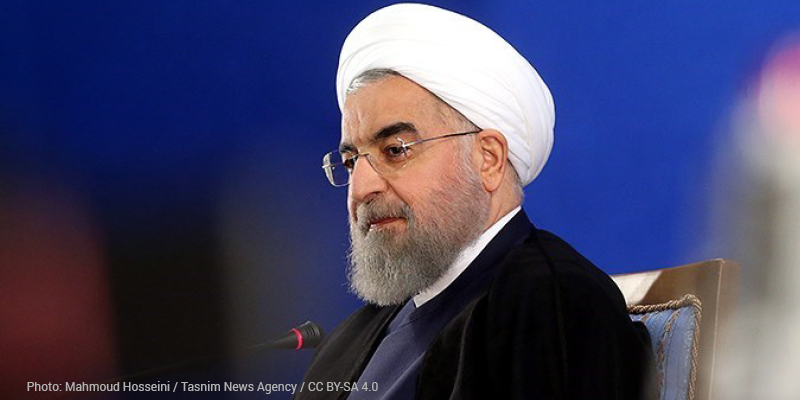Notations From the Grid (Special Month-End Edition): Out & About in the World This Week
With help from Myah Ward A DIVIDE OVER ANTISEMITISM — The ceasefire between Israel and Hamas militants, which ended 11 days of conflict, is holding. But America is now grappling with the painful specter of antisemitism after a flurry of reported new attacks against Jews. The Anti-Defamation League said Thursday that it logged 193 reports of antisemitic episodes since fighting began in the Middle East, compared with 131 during the previous week. And that rise in bias crime has exposed an underexamined truth in the politics of the issue: The two parties hold their members to different standards when it comes to antisemitism. On one level, progressive Democrats are trying to live out the principle that President Joe Biden offered during his 2020 campaign, as reported that spring by The New York Times. “Criticism of Israel’s policy is not antisemitism,” Biden reportedly told donors about one year ago. To a remarkable degree, congressional Democrats have balanced their support for Israel’s security this spring with criticism of policies by Prime Minister Benjamin Netanyahu’s government, urging that Palestinian rights be respected even amid hostilities with Hamas. But then-candidate Biden followed his words with an observation about another strain of rhetoric that continues to trip up liberals in his party. He warned that “too often, that criticism from the left morphs into antisemitism.” Rep. Ilhan Omar (D-Minn.), for one, apologized in 2019 after multiple comments that were criticized as antisemitic, with one drawing particular fire from senior Democrats. Two years later, during the current conflict, Omar described Israel’s actions in Gaza as “terrorism” but also called one recent reported antisemitic attack “horrific and unacceptable.” That lone tweet from Omar this month is unlikely to ease the pressure facing her and other members of the House’s liberal “Squad” during the current uptick in antisemitic attacks. Rep. Dean Phillips (D-Minn.) tweeted today that “it’s time for ‘progressives’ to start condemning anti-Semitism and violent attacks on Jewish people with the same intention and vigor demonstrated in other areas of activism. The silence has been deafening.” Biden’s and Phillips’ unsparing assessments of the left could hardly be more different from the GOP reception of Rep. Marjorie Taylor Greene (R-Ga.) after she compared Speaker Nancy Pelosi’s mask mandate on the House floor to the treatment of Jews during the Holocaust. Greene’s comments last week drew rebukes from a few House Republicans, all of whom voted to impeach former President Donald Trump -- who himself sparked charges of encouraging antisemitism when he said Jewish Americans who vote Democratic show “great disloyalty” to Israel. No current member of House GOP leadership has addressed Greene’s remarks. Conservatives might argue that there’s a reason Democrats are quicker to call for greater vigilance against antisemitism among their own — because, as many in the GOP believe, anti-Jewish bias is less of an issue for their party. A liberal might counter that Jewish voters continue to vote overwhelmingly for Democrats because support for the Israeli government, as Biden described, isn’t synonymous with support for the issues Jews themselves care about. But if you listen to Anti-Defamation League CEO Jonathan Greenblatt, as our Nicholas Wu and Andrew Desiderio will report in POLITICO on Tuesday morning, what Jewish Americans really care about is bigger than the words of anyone politician or party. Even though “many people in the Beltway are” parsing Greene’s comments, Greenblatt said to them, “and it’s just the latest manifestation of her mania, her lunacy — the reality is on the ground in public places, the Jewish community is worried about their own literal physical safety and security. And that’s what we need to keep focused on.” | ||||||||||||||||||||||||||||||
| ||||||||||||||||||||||||||||||
In this March 10, 2011 photo, then-Vice President Joe Biden, left, shakes hands with Russian Prime Minister Vladimir Putin in Moscow. | RIA Novosti, Alexei Druzhinin/Pool via AP | ||||||||||||||||||||||||||||||
— Geneva probable location for U.S.-Russia summit: Biden and Russian leader Vladimir Putin are likely to hold their first summit next month in Geneva, Switzerland , according to a U.S. official familiar with the issue. The exact date of the summit was not immediately clear, but it is expected to be held around the same time that Biden is visiting Europe in mid-June to meet with NATO and European Union leaders. — National Guard to depart Capitol nearly 5 months after Jan. 6 riot: The military presence has been a regular fixture for lawmakers and staff since mid-January, with troops scattered throughout the Capitol for high-profile events such as the impeachment of Trump and the inauguration of Biden. Their exit comes as Capitol Police and other Hill security officials have raced to address shortcomings exposed by the riot — including through the installation of new leadership. — New Jersey lifts mask mandate, social distancing rules in time for Memorial Day: New Jersey is lifting its mask mandate after having been one of the few holdouts in adopting the latest CDC guidance, Gov. Phil Murphy announced today. Murphy’s new directive, which takes effect Friday, the start of the Memorial Day weekend, gives New Jersey residents — even those who aren’t fully vaccinated — the green light to remove their masks and other face coverings in most cases. Matching the CDC’s guidance, the order excludes settings such as health care facilities, jails, schools, child care centers and public transportation networks. — Florida Rep. Stephanie Murphy will not challenge Rubio for Senate: Rep. Stephanie Murphy won’t run for U.S. Senate, a decision that was sealed after fellow Florida Congresswoman Val Demings recently signaled she will likely challenge incumbent Marco Rubio.
| ||||||||||||||||||||||||||||||

















Comments
Post a Comment